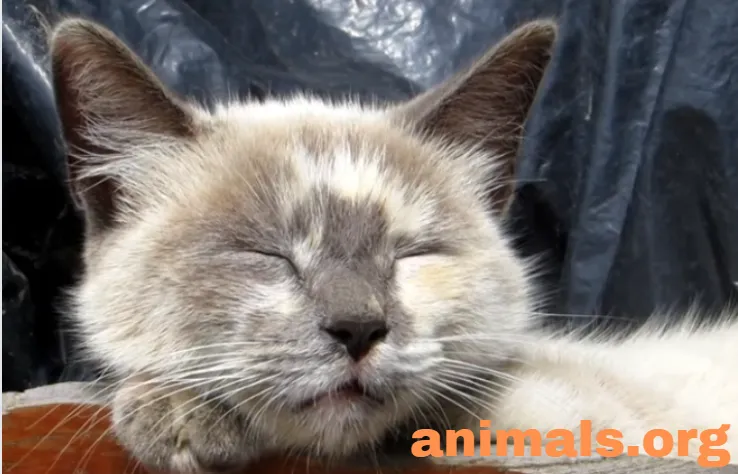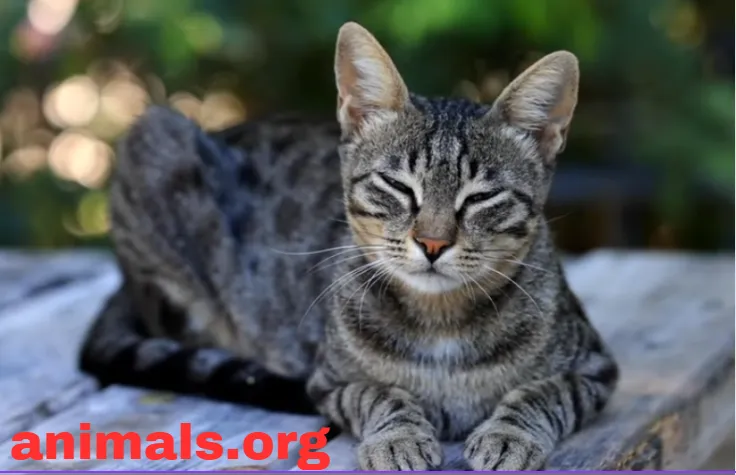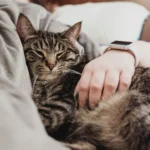Introduction
why is my cat making weird breathing noises-If you’ve noticed your cat making strange breathing noises, you may be concerned about your Cat Health. While some sounds, such as occasional sneezes, are harmless, persistent or unusual breathing sounds can indicate health problems. Understanding these sounds, being aware of the accompanying symptoms, and knowing when to seek veterinary care are essential to keeping your feline friend healthy. Read more about Cat information at Animals Hub Org.
Understanding Noisy Breathing in Cats
Cat breathing sounds can range from labored, labored breathing at night to high-pitched whimpering.
Types of Noisy Breathing
- Stridor: This type of noisy breathing is characterized by a high-pitched sound. This usually indicates problems with the larynx or trachea. Stridor is often the result of blockage or narrowing of these areas, which can be caused by tumors, foreign bodies, or severe inflammation. Paying attention to these signs is crucial for proper Pet Care.
- Rattle: A rattle is a soft sound that is made when a cat breathes. It usually refers to problems in the nose or throat, such as nasal congestion or inflammation. This type of noise is often associated with diseases such as laryngitis or upper respiratory tract infections.
Common causes of noisy breathing
Several factors can lead to respiratory problems in cats. Kathe si nesave katar e maj but arakhle rezone
Respiratory diseases: Bacterial or viral infections are the most common causes of noisy breathing. These infections can cause nasal congestion, sneezing, and wheezing.
Asthma: Cats can suffer from asthma just like humans. This condition causes inflammation of the lower respiratory tract, causing wheezing and difficulty breathing. Allergens and irritants can trigger asthma attacks in susceptible cats.
Heart problems: Heart disease, such as hypertrophic cardiomyopathy, can cause fluid to build up in the lungs. This fluid buildup can lead to wheezing or difficulty breathing, contributing to various Cat Breathing Noises. Both congenital and acquired heart disease can contribute to breathing problems.
Obesity: Excess weight can put more pressure on the respiratory system, leading to difficulties in breathing, a condition often seen in Cat Obesity. This is especially problematic for breeds that already have compromised airways, such as brachycephalic breeds like Persians. Additionally, Lung Disease In Cats can be exacerbated by obesity, making it crucial to manage your cat’s weight to support overall respiratory health.
Lung diseases: Conditions that affect the lungs, such as pneumonia, can lead to difficult, noisy breathing. Tumors or polyps at the back of the larynx can also block the airway and cause unusual breathing sounds. Nasopharyngeal polyps: Polyps or tumors that develop in the back of the throat can block the airways and cause noisy breathing. They are usually harmless but still require veterinary treatment.
Parasites: Parasites such as pinworms or tapeworms can severely damage the lungs and cause abnormal breathing sounds, leading to various Feline Respiratory Issues. If your cat is breathing noisily, it may be accompanied by other symptoms that could indicate an underlying problem.

General symptoms
Important signs:
• Fatigue – Extreme tiredness or unresponsiveness.
• Fainting or collapsing – Severe breathing difficulties or signs of cyanosis (green or gray gums and tongue).
Diagnosis and Treatment
Determining the cause of the blowout involves several diagnostic steps;
Diagnostic Methods
• Oxygen therapy; This is given to improve breathing and maintain healthy oxygen levels. This can be done using a mask, tube, or oxygen cage.
• Medications – Including antihistamines for allergies, steroids for inflammation, or antibiotics for infections.
• Fluid therapy – Intravenous fluids can help with dehydration or fluid overload.
I was always asking questions.
What should I do if my cat’s breath is unusual?

What should I do if I see my cat panting?
If you notice wheezing, check your cat for other symptoms and see a veterinarian if the condition persists or is accompanied by severe symptoms such as difficulty breathing or lethargy.
Are Cats Allergic to Breathing Noise?
Allergies can cause inflammation of the airways, leading to wheezing and noisy breathing. Asthma, a common allergic condition in cats, affects the lower respiratory tract.
Conclusion:
While some minor problems may improve with environmental changes, such as avoiding unwanted items or using a humidifier, it is important to see a veterinarian for proper diagnosis and treatment. How is Asthma Treated in Cats? Feline asthma is usually treated with medications such as corticosteroids to reduce inflammation and bronchodilators to open the airways. Your veterinarian will develop a treatment plan tailored to your cat’s specific needs the end. Breathing noises in cats can indicate a variety of health problems, from minor infections like Cat Infections to more serious conditions such as Feline Cardiac Problems. Understanding the cause and possible symptoms can help you take appropriate action. Regular veterinary checkups and changes in your cat’s breathing require immediate medical attention. By closely monitoring your pet and seeking veterinary care when necessary, you can treat any problems and get your cat breathing easier.



